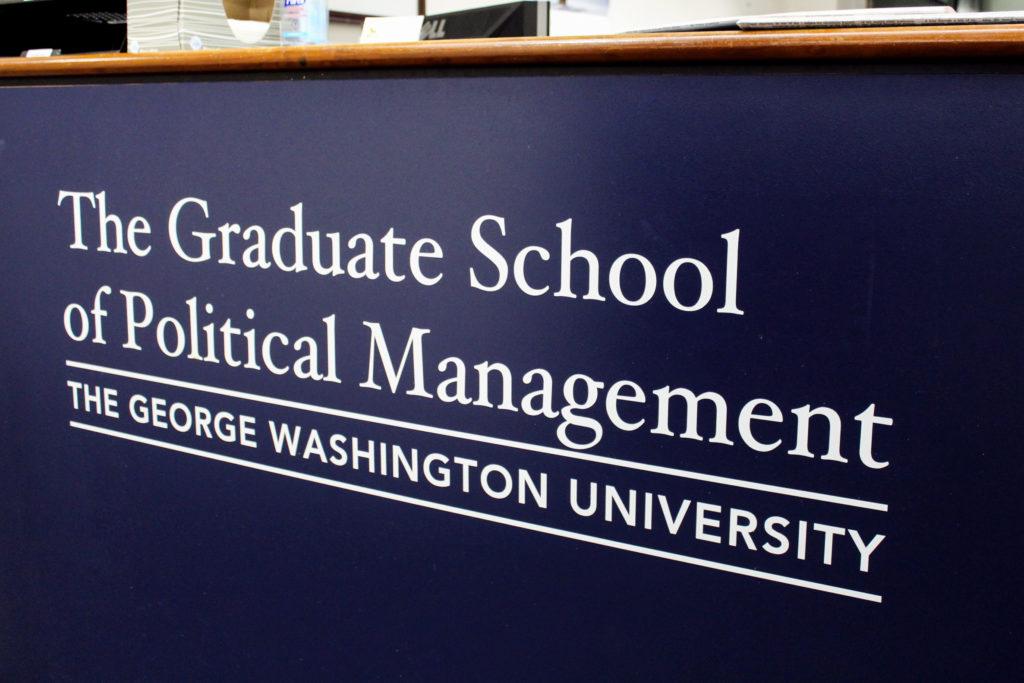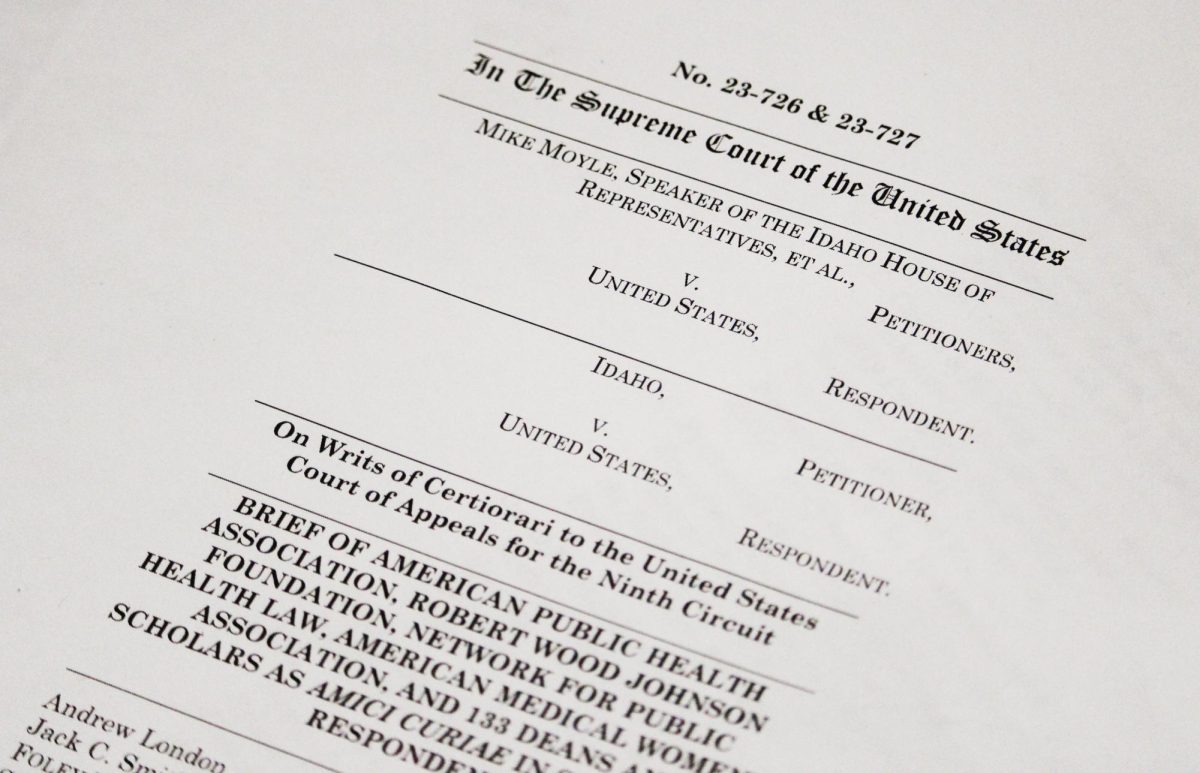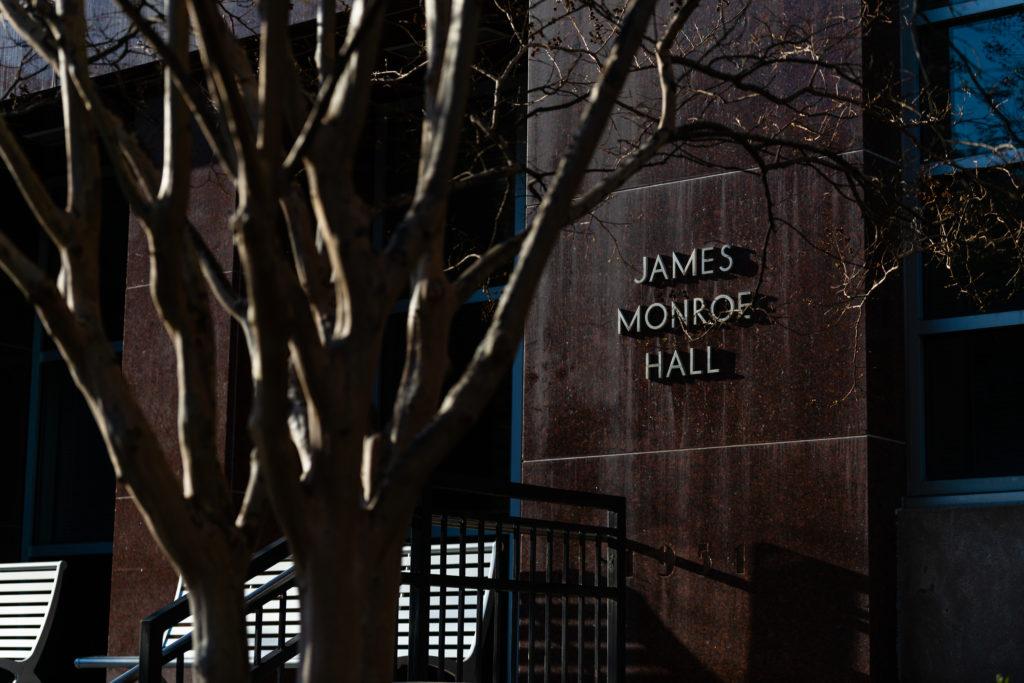Updated: May 2, 2019 at 12:30 a.m.
After a polling group that tracks voters’ intentions ended its partnership with the University, faculty plan to build up their own national opinion poll to stay at the forefront of political research.
The Graduate School of Political Management and the School of Media and Public Affairs decided last fall to stop hosting the Battleground Poll, a bipartisan survey that was housed at GW for 15 years. As the country nears another presidential election, faculty and officials said the University’s other independent political research projects, like the GW Politics Poll, will allow GW to remain a prominent source of information during the 2020 election cycle.
For a decade and a half, the University paid a portion of the operating costs of the Battleground Poll, conducted by The Tarrance Group and Lake Research Partners, two polling firms, and received the right to store polling data for student and faculty research. The poll’s operators left GW and joined Georgetown University’s Institute of Politics and Public Service in January, where they released the first Battleground Poll of the 2020 election cycle last week.
University spokesman Jason Shevrin declined to say why the Battleground Poll moved to Georgetown.
Shevrin said the GW Politics Poll, which launched in June 2018 and surveys registered voters about candidates and political issues, continues GW’s “strong tradition” of polling research. He said the poll, a collaborative project between GSPM, SMPA and political science faculty in the Columbian College of Arts and Sciences, will remain a resource for students, scholars and “political practitioners” interested in using the data to study politics.
“The poll seeks to advance our understanding of American politics and public affairs by generating timely and rigorous data and analysis,” Shevrin said in an email.
He said the Politics Poll will release three reports about voter preferences in the upcoming 2020 presidential election and a longitudinal survey tracking how voter opinions shifted during the primary and general election campaigns. YouGov, an online polling firm, conducts the poll, and GW faculty and graduate students are able to submit questions for the poll through an online portal on the SMPA website, Shevrin said.
He added that GSPM’s Public Echoes of Rhetoric in America Project, which started in 2015 and investigates how voters react to presidential candidates’ social media posts, will also allow faculty to engage with the upcoming election.
Faculty members said the method by which the Politics Poll’s operators accept questions for the survey – the poll’s directors decide based on faculty submissions – yields data relevant to faculty research projects. They added that the Battleground Poll, operated by a separate company, did not afford them as much flexibility.
John Sides, a professor of political science, said he created the Politics Poll with Kimberly Gross, an associate professor of media and public affairs, and Michael Cornfield, the research director of the Global Center for Political Management, to give faculty an outlet to obtain the data they need for their studies.
He said that during the 2018 election cycle, the Politics Poll conducted a survey in which the same group of respondents was polled four times to track how their opinions on certain politicians and policies shifted throughout the year. Sides said few other opinion polls chart how preferences change over time, setting this poll apart from competitors.
“Much has been gained,” Sides said in an email. “GW was not doing election polling. Now it is.”
Sides said officials redirected funds earmarked for the Battleground Poll to the Politics Poll to expand the Politics Poll’s operations.
He added that he viewed GW’s relationship with the Battleground Poll as “less than optimal” because faculty had little say over the poll’s questions, which made it difficult for them to gather data applicable to faculty research. He said that because of the setback, the University made a “deliberate decision” to terminate its relationship with the Battleground Poll and cease funding.
“The Battleground Poll had GW’s name on it but not much input from GW faculty or students,” Sides said.
Gross, a co-founder of the Politics Poll, said that for “years,” Gelman Library did not archive data from the Battleground Poll, meaning the data were not available for student use. Following a request from GSPM and SMPA faculty in 2017, the library worked with the Battleground Poll’s operators to ensure files were archived correctly and available for research use.
Ed Goeas, a co-founder of the Battleground Poll and the president and CEO of The Tarrance Group, a polling firm, said he and his team had a “good relationship” with GW for more than a decade. He said his poll parted ways with GW because GSPM faculty who used the poll’s data wanted to shift questions away from studying voter preferences on candidates and toward public policy issues.
“I think many professors that were using the Battleground data involved in tracking it were wanting to move away from the current political environment, or as they called it, horse race,” Goeas said.
Sue Zoldak, an adjunct professor for digital strategy at the Graduate School of Political Management, said the Battleground Poll’s departure from the University was “unfortunate” because the poll is a “well-respected” source of public opinion data for researchers, students and professors.
“It gave access to data that was in-house and that they could bring to their classrooms and talk about,” Zoldak said.
Zoldak said that despite the Battleground Poll’s departure, GW could remain relevant during and after election seasons because the school has several faculty with backgrounds in polling who are familiar with the survey process. She said faculty can teach students to understand how polling is conducted and how to interpret results.
“I’ve always told my students that it is an integral part of their education not only in public policy, but in economics and any kind of social study,” she said.
This post has been updated to reflect the following corrections:
The Hatchet incorrectly reported that the Battleground Poll’s operators violated their agreement with the University and stopped sending data to Gelman Library for archiving. The poll’s operators sent data to their contacts at GW each year, but the library started archiving the data in 2017 following a request from faculty. We regret this error.







